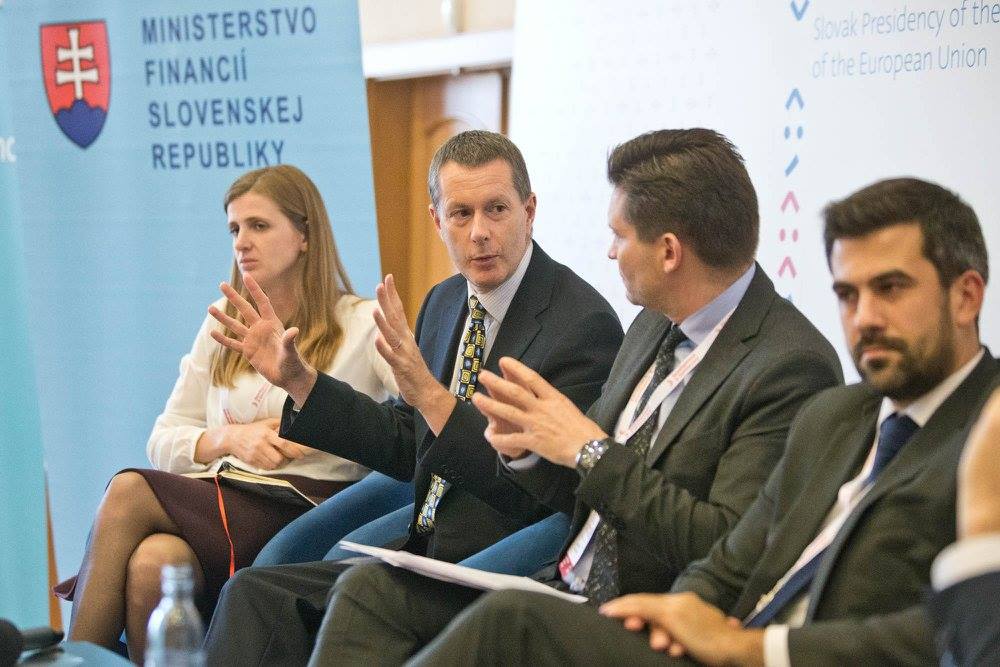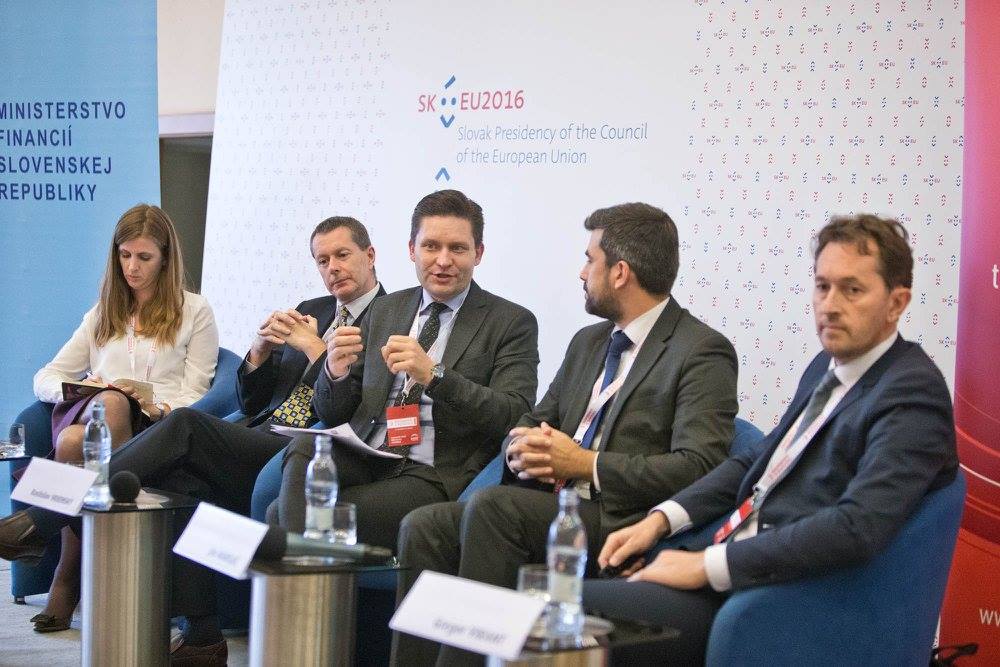Development organizations and governments around the world are trying to find ways to do business differently and introduce more effective, efficient and agile solutions and bottom-up approaches to today’s developmental challenges. The MF Slovakia roundtable speakers discussed new technologies and alternative finance models during International conference “Development and Democracy” in Bratislava.
Annual International conference “Development and Democracy” (organized by Pontis foundation and supported by Slovak MFEA, SlovakAid, IVF, EC and UNDP) took place in Bratislava at the end of October 2016. Ministry of Finance (MF Slovakia) co-organized one of the roundtables and panel discussions. It was focused on the processes of innovation with an interesting topic – “Disrupting Development: Does Innovation Work for the Most Vulnerable?” The Moderator of this MF discussion table was the manager from UNDP Istanbul Regional Hub: Rastislav Vrbenský. The booklet from the conference was published recently – you can download and read it here.
 One of the speakers: Gregor Virant served two times as a Minister of Public Administration, and is currently working in the Delivery Unit of the Prime Minister of the Republic of Serbia on streamlining public administration processes and cutting red tape. Virant outlined several key considerations to be kept in mind when designing IT services for public institutions: streamlining, optimization, simplification of processes, cutting red tape and removing administrative burden.
One of the speakers: Gregor Virant served two times as a Minister of Public Administration, and is currently working in the Delivery Unit of the Prime Minister of the Republic of Serbia on streamlining public administration processes and cutting red tape. Virant outlined several key considerations to be kept in mind when designing IT services for public institutions: streamlining, optimization, simplification of processes, cutting red tape and removing administrative burden.
For Virant, there are four principles to be followed in designing successful IT public services. These are: One step (life event) principle (to receive a service in one single step); Exchange of data in the back office (no need to carry documentation from one government office to another); No need to fill in forms by citizens (getting public servants to fill in the forms or having pre-filled forms); Digitalization (providing faster and more efficient public service delivery). Virant piloted the e-Baby project in Serbia that uses the above-mentioned principles to save parents time when reporting the birth of their newborn baby to several government institutions.
 Another speaker: Lejla Sadiku works at the UNDP Istanbul Regional Hub on open data in the Eastern Europe and Central Asia and manages the Transformative Governance and Finance Facility project, supported by the Ministry of Finance of the Slovak Republic. Sadiku’s presentation focused on three premises on how the innovation agenda shapes and can shape international development. These are: Necessity to change the discourse (instead of being the problem-solvers, development organizations should work more closely with grassroots communities, and support them in scaling up their solutions.); Opening space for collaboration (people-to-people exchange as a type of cooperation or citizens’ contribution time to the improvement of the overall governance and strengthening of institutions.); Bridging the divide between what is formal and informal (Instead of focusing on technical differences, we should take a problem-solving approach, develop technological solutions responsibly, support the growth of communities and develop concrete measurable solutions).
Another speaker: Lejla Sadiku works at the UNDP Istanbul Regional Hub on open data in the Eastern Europe and Central Asia and manages the Transformative Governance and Finance Facility project, supported by the Ministry of Finance of the Slovak Republic. Sadiku’s presentation focused on three premises on how the innovation agenda shapes and can shape international development. These are: Necessity to change the discourse (instead of being the problem-solvers, development organizations should work more closely with grassroots communities, and support them in scaling up their solutions.); Opening space for collaboration (people-to-people exchange as a type of cooperation or citizens’ contribution time to the improvement of the overall governance and strengthening of institutions.); Bridging the divide between what is formal and informal (Instead of focusing on technical differences, we should take a problem-solving approach, develop technological solutions responsibly, support the growth of communities and develop concrete measurable solutions).

